Even with your New Year’s pledge to stay away from cricket and focus more on studies, even with your colleagues raving about Louis van Gaal’s strategies more than anything else, even with India’s Leander Paes triumphing the Australian Open mixed doubles with Martina Hingis, you have been secretly keeping track of the approaching ICC World Cup and perhaps placing bets on teams’ chances.As the handful of cricketing nations gear up for the big tournament, I provide you a last-minute review of the foremost problem areas for the top eight teams in accordance to their latest ICC ODI rankings.
#8 West Indies - lack of quality options
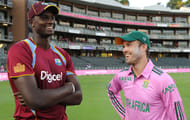
If performances leading to the World Cup are anything to go by, West Indies appear to be the least equipped in handling pressure at the biggest stage. While most will be inclined to predict a quarter-final berth, this mercurial team does possess every ingredient of pulling off a shocker and surrendering meekly to one of the minnows in the group stage.
The relationship between the board and the players isnt under any concealment with the latter advocating their support for the excluded duo of Dwayne Bravo and Kieron Pollard publicly. Such off-fieldtensioncouldve either initiated an amplified positive on-field result or worsened the already bad. Under the rookie skipper, Jason Holder, West Indies settled for the latter against South Africa.
In spite of Chris Gayles presence and Marlon Samuelss reassurance, the batting remains unflattering, although not as much as the bowling Nikita Miller, Sulieman Benn, Jerome Taylor, Kemar Roach, Johnathan Cottrell and Darren Sammy hardly pack a punch. Sunil Narines absence, no doubt, is going to be felt.
The lack of depth in both the departments and the scarcity of options so much so that Ramnaresh Sarwan was in the scheme of things till mid 2013 coupled with the ineffectiveness of the hit-or-miss policy ofGayle and Andre Russell in the large Australian grounds are bound to supply the Caribbean team with plenty of setbacks once the Cup begins.
#7 Pakistan - weakened bowling attack
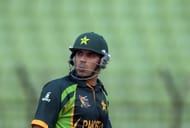
Losing two of their match-winners Mohammad Hafeez and Saeed Ajmal to illegal bowling action months before the World Cup has cost Pakistan dear. As a nation that has produced bowlers in exponential numbers in comparison to batsmen, availability must not seem a problem, except that, in this case, it is.
Dravid said in his interview with ESPNCricinfo, "They lack those big-ticket players or game changers which you would associate the Pakistani team of the past." Now that even Junaid Khan has been ruled out because of injury, a bowling line-up consisting of Wahab Riaz, Rahat Ali and Yasir Shah hardly looks intimidating, and Shahid Afridi needs to replicate 2011 if he wants his team in the semifinals.
However, its not as much about talent as it is about playing as a team. Misbah-ul-Haq, lets face it, is not an inspirational leader who would grab his men by the scruff of their necks and pull off an Imran Khan. Without a proactive captain whod do anything to prevent the game from drifting away, you can barely imagine being successful in a multination tournament.
The batting looks neither settled nor inexperienced. Guys like Ahmed Shehzad have been around for quite some time, yet have fallen short of making a mark. The apparently talented Umar Akmal, on the other hand, has made a name for flattering to deceive. It is unfair on Misbah and Afridi to expect them to rejuvenate such a batting line-up that breeds inconsistency.
#6 New Zealand - Can they handle the pressure of being favourites?
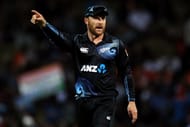
It is one of those rarest occasions in history where the Kiwis are actual favorites to win the World Cup. Of course, the simplest reason being home advantage. Further, they also possess a fairly experienced batting line-up,a potent pace attack and an electric fielding unit the stars could not have been aligned any more perfectly.
There is no perceptible weakness except that the spin department appears barely incisive. Vettoris potency has dropped off with age, while Nathan McCullum is, at best, just another way of keeping the pacers fresh without leaking too many runs. That they will be bowling on unfavorable tracks may turn out to be a minor headache once the tournament starts.
Handling pressure is also something that New Zealand needs to work on. With the exception of Kane Williamson and Ross Taylor, the rest of the squad has the propensity to wilt under pressure. Consolidation of the innings after initial hiccups is, therefore, not a strong point for the middle-order consisting of Corey Anderson,Grant Elliott and Luke Ronchi.
#5 England - Uncertainty

Uncertainty Thats the word that describes this English team right now. Uncertain in their approach, uncertain in their strokeplay, uncertain in their line and length Eoin Morgans men start their campaign as certainly not the favorites.
Mental issues galore for the Three Lions. Having trained under Alastair Cook for three years, the sudden switch to Morgan and his style of play would require the obvious time to settle down. Cook isnt in the frame of things at all, and that may take some time to get adjusted with.
The mental block against minnows that resulted in losses against Bangladesh and Ireland in the previous edition keeps on haunting England. A quarter-final spot shouldnt be a problem unless they pull off a couple of unforeseen defeats this time too.
The Kevin Pietersen factor continues to affect the sides performances that are scaling newer heights of inconsistency every passing day. The departure of Englands best middle-order batsman has robbed the line-up of the ability to switch gears as and when required. None in the current playing XI comes with a package of solidity, flexibility and firepower like the man.
The bowling unit presents a clueless faade despite the presence of James Anderson and Stuart Broad. The duo has been on and off in ODIs, and England has had to rely on the likes of Moeen Ali to fetch wickets. With the Australian pitches offering little assistance to spinners, the ultimate responsibility of creating magic comes down to Anderson-Broad-Finn-Jordan.
#4 Sri Lanka - Match-winners
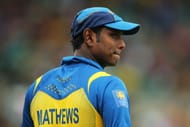
Having ended up second-best in the last two occasions, Sri Lanka will be prepared to give up anything in order to turn out third-time lucky more so for the legendary Mahela Jayawardene and Kumar Sangakkara who will be bidding farewell to international cricket once the Cup-winners are decided.
A reasonably well-balanced side, there are scarcely any issues that possess the ability to jeopardize their Cup run. Off-field problems with the board, in reference to Sangakkaras recent sourness with the administrators, might be a distraction, but with matured, focused kids out here, that should hardly prove to be some obstacle.
The opening combination of Tillakaratne Dilshan and Dimuth Karunaratne is pretty much a gamble. The inability to absorb pressure in crisis situations, which results from the lack of other big names in the middle and lower middle-order, is another shortcoming. A horrible strike-rate sums up the handful of weaknesses with regards to the dark horses, Sri Lanka.
#3 South Africa - batting depth
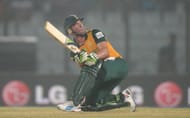
For the umpteenth time, South Africa goes into the World Cup as one of the favorite contenders. Yes, the odds of choking just like in the previous editions are still high. However, the single spectacular difference remains that they indeed look more solid this time and have only a couple of areas to take care of, which even if they dont might not get in their way of winning the trophy finally.
Primarily, the lack of momentum in the middle-order may turn out to be of concern the day both Hashim Amla and AB de Villiers fail to come through. Neither JP Duminy nor Faf du Plessis has been in impressive form, and that might result in one of those many frequent brain-freezes that the Proteas are famous for in multination tournaments.
Further, the over-dependence on Amla and De Villiers is riskier than it looks. As a squad not particularly known for their batting depth, simultaneous failures of the openers and De Villers may land the team into irreparable coma.
#2 India - bowling unit
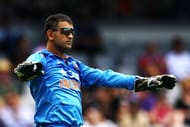
In their recently concluded tour Down Under, India drew ablank not surprisingwhen you take into account the fact that barely four of their players have played in Australian conditions before. Countless problems have, therefore, surfaced and practically almost all of them are somehow related to the Tasmanian soil and air.
Taking the field with the burden of a billion hopes on your shoulders is never easy, least so when you are defending a world title. It, therefore, comes down to MS Dhonis school of calmness to steer his boys young enough to panic in dire circumstances on alien land in the right path. Inexperience probably will hurt India badly, yet it ensures a number of positives for the future too.
Consistency from the bowlers is again a tough ask. Firstly, Bhuvneshwar Kumars pedestrian pace is unlikely to cause too much trouble on the hard, bouncy decks. Secondly, faster bowlers like Umesh Yadav and Mohammed Shami have been too off-colour lately to bestow responsibility. With Ishant Sharma being able to win the match for the opposition single-handedly on his day, the phrase wicket-taking options gradually seems to fade away into oblivion.
As Rahul Dravid opines, Indias batting is over-reliant on Virat Kohli. The openers imitate London weather in predictability and the lower middle-order of Suresh Raina, Ravindra Jadeja andDhoni has a tendency to succumb once Kohli is dismissed cheaply. Such individual dependence is almost the perfect recipe for failure in an imperfect world as this.
#1 Australia - Captaincy musical chairs
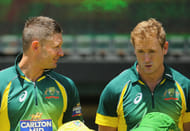
Winning the final of a tri-series involving India and England by 112 runs will, most certainly, paint a rosy picture. The fact that this was preceded by a 4-1 rout of South Africa augments the perception of flawlessness in this team.
But cricket is not mathematics. Two and two dont always add up to four while you are inside the 22 yards.
Regardless of the on-field excellence the credit for a large fraction of which goes out to the ineptness of English and Indian players, Australia is facing a lot more issues than is discernible.
When was the last time that an Australian team began the World Cup with everybody still unsure about who might go out for toss in the next match? None except Michael Clarke himself has any idea of what he is doing and what he wants to do, while ODI vice-captain George Bailey and Steve Smith might have fallen asleep fantasizing about leading the Baggy Greens in front of the home crowd.
A horde of all-rounders along with specialist batsmen like David Warner, Aaron Finch, Bailey and Smith provide a problem of plenty albeit increasing the number of available bowling options. Stacking the playing eleven with four all-rounders sounds ideal unless it compromises the batting potential. In case of Australia, the probability of Shane Watson, James Faulkner, Glenn Maxwell and Mitchell Marsh failing simultaneously is high enough to weaken the middle-order reasonably.
Add to this, the high economy rate maintained by the bowlers except Mitchell Johnson. The reason why it hasnt been a big deal of late is that theyve scooped up scalps regularly. Once the opposition refuses to throw away wickets, the bowlers are bound to return with sorry figures at the end of the day.
Follow IPL Auction 2025 Live Updates, News & Biddings at Sportskeeda. Get the fastest updates on Mega-Auction and cricket news